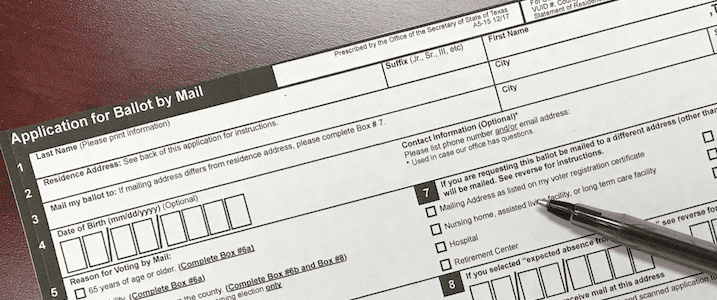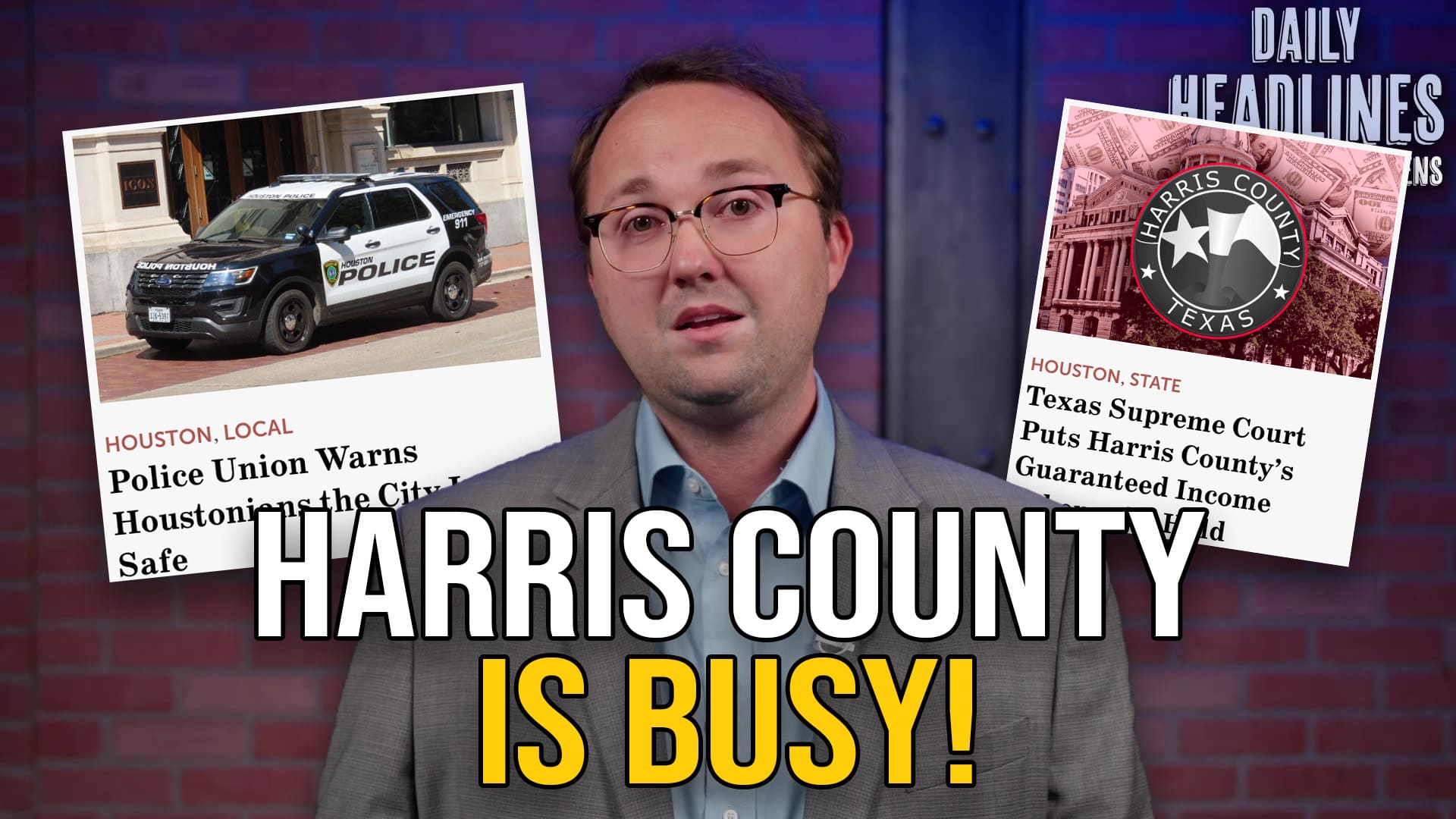In yet another election, Dallas County prosecutors are investigating hundreds of potentially fraudulent mail ballot requests.
The Dallas County District Attorney’s office is now reviewing more than 1,200 primary ballot applications flagged as suspicious by election officials, continuing a voter fraud investigation opened in the wake of last year’s mail ballot harvesting scandal that involved over 700 questionable ballots.
The DA’s office got a judge’s permission to sequester questionable mail-in ballot applications for the March 2018 primaries after the elections office started receiving boxes full of applications.
“We were receiving so many applications in a Fed Ex box, four or five hundred at a time,” said Dallas County Elections Administrator Toni Pippins-Poole. All the boxes came from a single address.
The applications were supposedly completed by voters with assistance from someone else. Mail ballots are used primarily by elderly and disabled voters – who one Dallas vote harvester acknowledged last year are easy targets for unsolicited assistance.
Some of the applications were suspicious because they were filled out in 2017 but not submitted until January and February of 2018, according to Assistant District Attorney Andy Chatham.
Four of the sequestered applications were in the names of deceased voters. At least one voter had been dead for several years, Pippins-Poole confirmed.
The deceased applicants didn’t receive ballots, but the rest did. The elections office kept track of those ballots and said 459 of them were filled out and returned. The 459 ballots received added scrutiny from a ballot board, a group of citizens appointed by each party to review absentee ballots. Forty of those ballots were rejected. Many reportedly had signatures that didn’t match signatures on voters’ original voter registration forms.
“All of them will be scrutinized by the DA’s office,” Pippins-Poole said.
If fraud is discovered and the perpetrators identified, the penalties will be harsh. Under a new law enacted last year to deter mail ballot voter fraud, it’s now a state jail felony to provide false information on a ballot application or submit an application without a voter’s permission.
Senate Bill 5 also authorized ballot boards to compare ballot signatures with other signatures on file with the voter registrar and reject a ballot if the ballot signature is not the voter’s. That’s significant because if someone other than a voter submits a ballot application and also signs their ballot, the signatures will match – even though both signatures are fraudulent.
The questionable ballot applications came from West Dallas, Grand Prairie, and Oak Cliff – areas of the county where illegal mail ballot harvesting and fraudulent ballot applications were reported in last year’s municipal elections. The DA’s office is still investigating hundreds of mail ballots from those May 2017 elections that they believe were fraudulently obtained through illegal voter assistance or forged. One suspect has been arrested so far in that case.
“We want to let people know that we are serious” about prosecuting voter fraud, Dallas County District Attorney Faith Johnson said Monday about the county’s latest investigation. “People have the right to have their votes counted.”
Illegal vote harvesting is an ongoing problem in Dallas County.
“We are witnessing voter fraud become an obvious feature of elections in Dallas County,” said Logan Churchwell, Communications & Research Director for Public Interest Legal Foundation. PILF, a law firm dedicated exclusively to election integrity, is currently engaged in litigation in Texas and other states to hold election officials accountable to federal voting laws like the National Voter Registration Act.
“Reform around the absentee voting system in 2017 was a start,” Churchwell told Texas Scorecard. “But Dallas’ recent fixes on limits to printed ballot applications are as effective as a bandage without adhesive.”
Measures the Texas Legislature enacted last year to protect elderly and disabled victims of mail ballot fraud were long overdue. But Churchwell says more is needed.
“Texas should reform the application requirement to include unique information like a driver’s license number or other form of government-issued identification,” Churchwell says. States like Kansas already require this extra security measure, making it harder for vote harvesters to submit applications without voters’ approval.
That is one of many possible reforms the legislature may consider next session. State lawmakers met last month to hear testimony on the security of voting in Texas, including vulnerabilities in the mail ballot process. Texans concerned about the integrity of elections will be watching to see how last year’s reforms are implemented and what additional measures are needed to protect the right of every voter to cast his or her own ballot, in Dallas and statewide.





